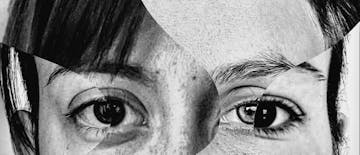Tatiana Kocmur: Flesh

With the project Meso (Flesh), performance artist Tatiana Kocmur continues her exploration of the theme of sexual violence, which she first addressed in her 2022 performance The Following Body. While her earlier work focused on the inexpressibility of trauma and the difficulty of conveying its often unspeakable consequences nonverbally, this new project centres on the long process of accepting and rekindling love for a body inevitably transformed by such an experience.
In an inclusive and safe environment, Kocmur and her collaborators reflected on ways to offer (mutual) support, moving away from conventional, often generalized, and rigid therapeutic approaches to addressing the consequences of sexual violence. Through an intimate and sensitive creative process, the participants - who share personal experiences of such violence - spontaneously formed a trusting and supportive community based on gentleness, mutual care, and embodied compassion, affirming non-institutionalized, intuitive, and subjective ways of coping with and accepting both their own and each other’s pain.
Concept • Tatiana Kocmur
Co-authors and performers • Ivana Kocmur, Tatiana Kocmur, Eva Mulej Vrabič, Liza Šimenc
Voices • Ivana Kocmur, Tatiana Kocmur, Eva Mulej Vrabič, Liza Šimenc
Sound • Eva Mulej Vrabič
Video and editing • Tatiana Kocmur
Masks • Jaka Grm
Props • Jaka Grm, Ivana Kocmur
Object • Daniel Leber
Text • Anja Guid
Design • Tatiana Kocmur
Producer • Žiga Predan
Production • Društvo Pekinpah
Co-production • Puppet Theatre Maribor
Supported by the Ministry of Culture of the Republic of Slovenia and the Municipality of Ljubljana - department for Culture.
Tatiana Kocmur (1992) lives and works in Ljubljana. In 2020, she completed her postgraduate studies in painting with a master's thesis, Body Installation – Between Performance and Object. Since 2013, she has been exhibiting and performing at various cultural venues in Slovenia and abroad (Skopje, Milan, Bologna, Berlin and Timișoara). Her artistic practice moves between painting and live art, and she also works as a producer of contemporary art (co-organizer of Cirkulacija 2, co-initiator of the platform for the production, exhibition and research of performative art TRANSLACIJA/TRASLACIÓN). Her practice is characterised by collaboration with artists from various fields. The works created during close cooperation are a reflection of common interests and carry within them the specificity of the interweaving of artistic approaches that differ from each other – in themes, methods of execution, and use of materials and media. The common denominator is an interest in live art and creating events involving the artists' bodies. In 2024 and 2021, she received a grant from the Ministry of Culture of the Republic of Slovenia. In 2022, she participated in the 5th triennial of young artists in the Contemporary Art Gallery of Celje. Her video works are included in the DIVA archive (SCCA-Ljubljana).





